In Scala REPL I can use Seq[String]() as a default value for a parameter of type Seq[T].
Welcome to Scala version 2.11.7 (Java HotSpot(TM) 64-Bit Server VM, Java 1.8.0_101).
Type in expressions to have them evaluated.
Type :help for more information.
scala> def d[T](foo: Seq[T] = Seq[String]()) = 12
d: [T](foo: Seq[T])Int
scala> d()
res0: Int = 12
Trying the same in IDEA, it complains “Seq[String] doesn't conform to expected type Seq[T]”. Why?
- IntelliJ IDEA 2016.2.4
- Scala Plugin 2016.2.1
- Scala 2.11.7
Note 1: Sorry, I know that my example function does not make much sense. However, my real (and useful) function is unnecessarily complex to post it here.
Note 2: At first, instead of type T my type name in the example was Any which was not a good idea (because it shadowed scala.Any) and caused some confusion. Thus I fixed that.
